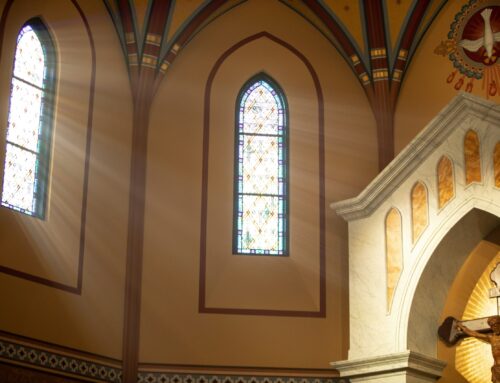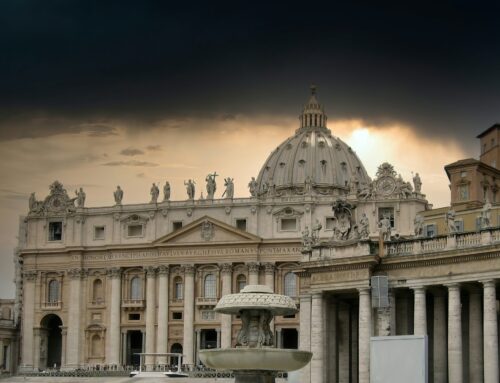The Bible holds a place of profound importance in the Catholic faith. It is not merely a collection of ancient writings; rather, it is the living Word of God, divinely inspired and essential to understanding the Church’s teachings, doctrines, and the path to salvation. From the earliest days of the Church, the Bible has been central to the Catholic tradition, guiding believers through its Scriptures, offering wisdom, and revealing God’s plan for humanity.
The Bible as the Word of God
The Catholic Church teaches that the Bible is the inspired Word of God, written by human authors under the guidance of the Holy Spirit. In the Bible, God reveals Himself to humanity—His love, mercy, and desire for a relationship with us. The Bible is made up of 73 books, divided into the Old Testament and the New Testament.
- The Old Testament is foundational to understanding God’s covenant with His people and includes sacred stories of creation, the patriarchs, prophets, and the laws given to the Israelites.
- The New Testament is centered on Jesus Christ, His teachings, life, death, and resurrection, as well as the formation of the early Church.
Through these sacred texts, Catholics come to understand God’s enduring presence throughout history, from the time of creation to the redemption offered through Jesus Christ.
The Role of the Bible in Catholic Worship
The Bible plays an essential role in Catholic worship. Every Sunday, Catholics gather to celebrate the Mass, where Scripture readings are a key element. The Church follows a Lectionary, a structured cycle of readings that ensures the faithful hear a broad range of Scriptures throughout the liturgical year. The Mass includes:
- A reading from the Old Testament.
- A Psalm, often sung, that reflects themes of praise, thanksgiving, or petition.
- A reading from the New Testament letters or Acts of the Apostles.
- A reading from the Gospel, which recounts the life and teachings of Jesus Christ.
These readings are followed by a homily delivered by the priest or deacon, who reflects on the Scripture passages and their application to daily life. Through these readings, the Word of God becomes part of the liturgy and nourishes the spiritual life of the community.
Scripture and Tradition: The Catholic Approach
The Catholic Church teaches that Scripture and Tradition together form the deposit of faith. While the Bible is of utmost importance, it is not the only source of divine revelation. The Church also recognizes the authority of Sacred Tradition, the oral teachings handed down from the apostles through the ages. These two sources of revelation—Scripture and Tradition—work together to guide the Church in its teachings and practices.
- Sacred Tradition includes the Church’s teachings on the sacraments, the role of the Virgin Mary, and moral guidance.
- The Magisterium (the Church’s teaching authority) is responsible for interpreting both Scripture and Tradition, ensuring that the faithful receive the full truth of God’s Word.
The Bible as a Guide for Personal Spiritual Growth
The Bible is more than just a historical or liturgical text—it is a powerful tool for personal spiritual growth. Catholics are encouraged to read and meditate on Scripture regularly, allowing God’s Word to guide their lives. Some ways the Bible can enhance spiritual growth include:
- Lectio Divina: This ancient practice involves prayerful reading and meditation on Scripture, allowing God to speak directly to the heart.
- Daily Scripture readings: Many Catholics follow daily readings from the Lectionary, which can provide spiritual nourishment and direction for each day.
- Personal Bible study: Studying the Bible can deepen one’s understanding of Catholic doctrine and help apply its teachings to everyday life.
The Bible serves as a personal dialogue between the believer and God, offering encouragement, inspiration, and guidance in times of joy or hardship.
How the Bible Enhances Catholic Spiritual Life
The Bible, through its teachings and revelations, enhances the spiritual life of Catholics in numerous ways:
- Strengthening Faith: The stories of the Old and New Testaments show God’s faithfulness, helping believers trust in His plan for their lives.
- Moral Guidance: Scripture provides moral teachings that help Catholics discern right from wrong in a complicated world.
- Deepening Prayer: Praying with Scripture allows believers to listen to God’s voice and strengthen their relationship with Him.
- Offering Hope: The Bible, particularly the Gospels, is filled with messages of hope and redemption through Jesus Christ, reminding us of God’s constant love.
- Inspiring Action: Reading and reflecting on the Bible encourages Catholics to live out the Gospel in their daily lives, serving others and spreading Christ’s love.
The Bible in Catholic Life
The Bible is foundational to the Catholic faith, providing guidance, inspiration, and wisdom through God’s revealed Word. Whether read during Mass, studied personally, or prayed through practices like Lectio Divina, Scripture enriches the lives of the faithful and draws them closer to God. In times of joy, sorrow, or uncertainty, the Bible stands as a beacon of hope and the ultimate source of truth for Catholics around the world.
To deepen your relationship with the Bible, tune in to Bible in a Year with Fr. Mike Schmitz on Catholic Radio Network. Check our Programming Schedule for air times and join us as we explore the richness of Scripture together.



Leave A Comment